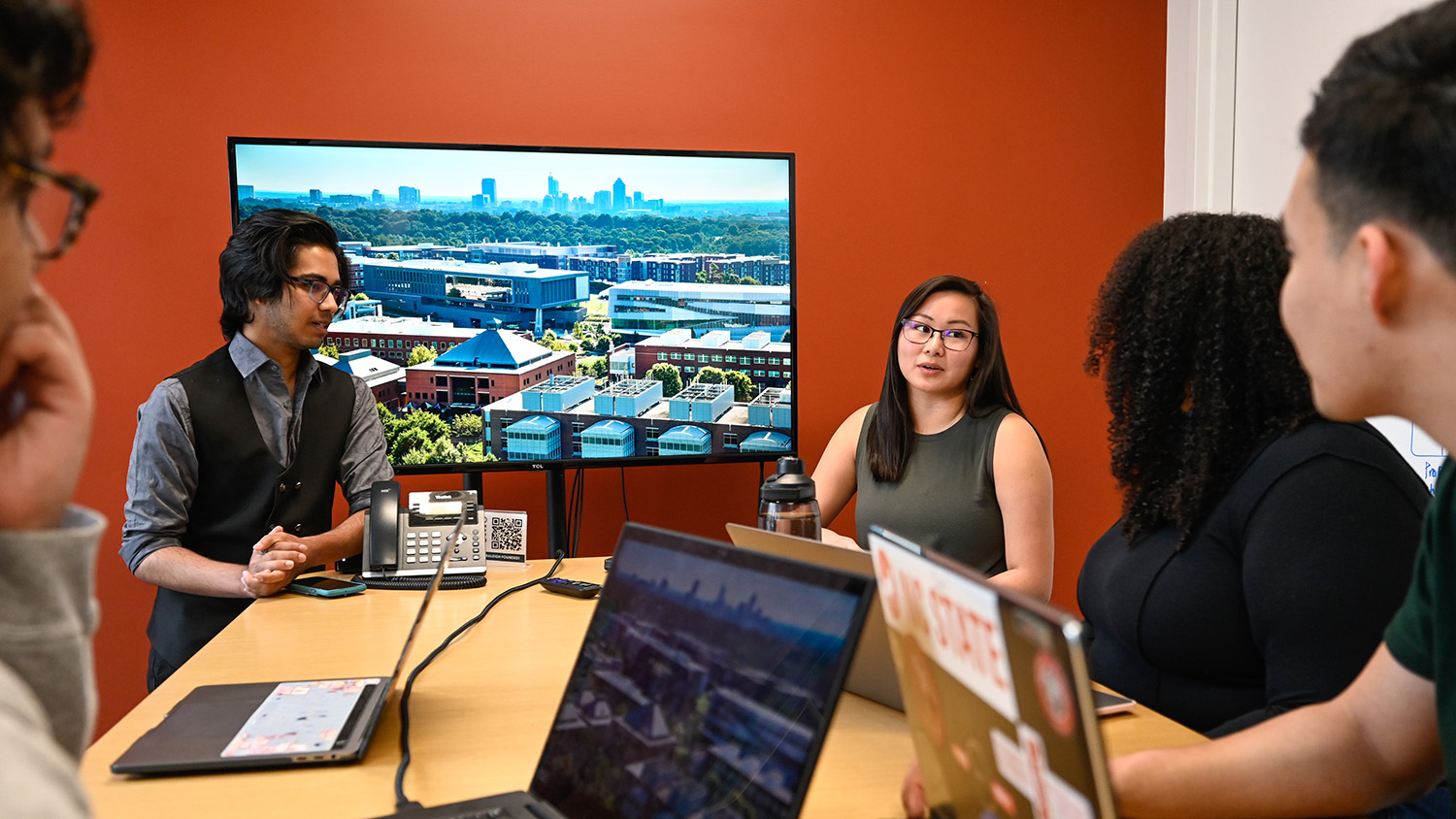University Advising and Exploratory Studies Highlights Student Services with Rebrand

NC State’s Academic Advising Programs and Services (AAPS) has changed its name to University Advising and Exploratory Studies, intending to clarify the services University Advising offers, and allowing Exploratory Studies to stand out as a program within University College.
The office has helped thousands of NC State students on their path to success. With the new name, the leaders of the unit and University College in the Division of Academic and Student Affairs (DASA) hope to continue to engage and support students who need this level of support the most.
“What makes it important is providing clarity to students and the campus community as to what we do,” said Ontario Wooden, University College’s senior associate dean. “Students who are directly admitted to their colleges can also benefit from the resources provided by University Advising and Exploratory Studies. Students who have yet to declare a major need a home, and Exploratory Studies is that home. Additionally, students in any college may be served through University Advising based on their particular needs.”
What makes it important is providing clarity to students and the campus community as to what we do
Kesha Reed, the associate vice chancellor and associate dean of DASA/University College, explained that the service offerings of University Advising and Exploratory Studies won’t change.
The rebrand, however, will clarify which services students can take advantage of, including the Inter-College Transfer (ICT) program, change of major drop-in advising, and advising support services for transfer and international students. These services do not replace the assigned primary role advisor but will complement those resources by engaging students with specific needs.

“The goal, from my perspective, is to elevate all of the services provided by the unit so that the university is aware of the great resources provided by DASA,” Reed said. “The impetus is to highlight both the university facing support and Exploratory Studies. This rebranding is an opportunity to emphasize the resources available and the impact for all students who engage with these services.”
One of the most critical services that University Advising offers is the Inter-College Transfer (ICT) Program. Through ICT, students can change their major at NC State, whether they’re struggling with their initial major and need to find a better fit or know their new intended major but it will take time to transition into the new major.
Brian Peters, University Advising’s associate director, said that ICT has doubled its five-year graduation rate over the last four years.
University Advising also offers drop-in services for students who want to explore changing their majors. Peters said that 1,071 students used this service during the 2022-23 school year, a 227% increase from the 2020-21 school year as students were more interested in changing their major after the COVID-19 pandemic.
The University Advising side of the rebranded program also provides support for transfer and international students, in addition to their assigned academic advisors.
“We like to say we work with students in transition,” Peters said. “Exploratory Studies students are in a transitional period of entering college and figuring out what they want to do with their lives. For other students, they’re in transition as well. They’re between majors, new to the institution, or new to the United States. They may have identified one type of major and one type of career choice their whole life, and now, maybe that’s not going to be what happens. Because of these programs, we’re keeping these students and helping them still find success at NC State.”
We like to say we work with students in transition.
Along with its services for students, University Advising also offers training programs and recognition for academic advisors across NC State.
Exploratory Studies is a program for incoming first-year students who are undecided in their major at NC State.
Kimberly Cole, associate director for Exploratory Studies said that the program, which takes in NC State’s second-largest first-year class every year, helps students figure out the right major for them “through proactive, cross-curricular academic advising.” The program also teaches seminar courses taught by Exploratory Studies academic advisors, helping students learn how their skills, interests and values all come into play in selecting a major. Additionally, the retention rates for students in Exploratory Studies have been consistently comparable to declared students.
Exploratory Studies advisors also focus on the careers their students might be interested in so they can then consider which majors are best suited to help set them up for their chosen career path.
“I think Exploratory Studies is critical,” Cole said. “Not all 18-year-olds know what they want to do going into college, and many aren’t exposed to the majors that NC State offers until they get here. So I think it’s really important to have a program that allows them to come in and spend some time exploring without losing time to graduation.”

The hope of Wooden, Reed, Peters and Cole is that this rebrand raises additional awareness for the program’s resources and that more students take advantage of those resources.
As an advising unit within the Division of Academic and Student Affairs, University Advising and Exploratory Studies is focused on supporting the whole student.
“One of the things that we’re trying to do in Academic and Student Affairs is rethink, reframe, and reimagine what the student experience is,” Wooden said. “As we interact with students and we think about our practice and how processes might create barriers, we can work to improve the student experience.”
- Categories:


